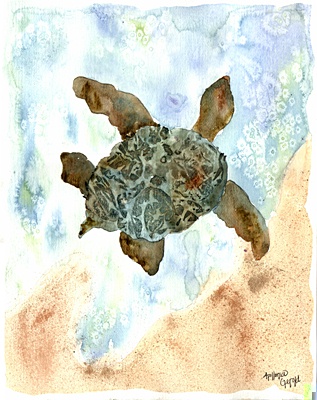All Nonfiction
- Bullying
- Books
- Academic
- Author Interviews
- Celebrity interviews
- College Articles
- College Essays
- Educator of the Year
- Heroes
- Interviews
- Memoir
- Personal Experience
- Sports
- Travel & Culture
All Opinions
- Bullying
- Current Events / Politics
- Discrimination
- Drugs / Alcohol / Smoking
- Entertainment / Celebrities
- Environment
- Love / Relationships
- Movies / Music / TV
- Pop Culture / Trends
- School / College
- Social Issues / Civics
- Spirituality / Religion
- Sports / Hobbies
All Hot Topics
- Bullying
- Community Service
- Environment
- Health
- Letters to the Editor
- Pride & Prejudice
- What Matters
- Back
Summer Guide
- Program Links
- Program Reviews
- Back
College Guide
- College Links
- College Reviews
- College Essays
- College Articles
- Back
Whale´s Poo Rocks!
Did you know we need whales to breath? Did you know whale´s poo is of great importance for our ecosystem? And what about if I told you today that you have to actually care about whale´s poo, which is called whale´s pump? Whales are the ecosystem engineers. They help maintain the stability and health of the oceans, and even provide services to human society. Whale poop and pee provide important nutrients to the oceans on which we all depend on. But there's a problem: in the 1600s, there were so many Right whales in Cape Cod Bay off the east coast of the U.S. that apparently you could walk across their backs from one end of the bay to the other. Today, they number in the hundreds, and they're endangered. Like them, many species of whales saw their numbers drastically reduced by 200 years of whaling, where they were hunted and killed for their whale meat, oil and whale bone. Whales are slaves of our ignorance! We only have whales in our waters today because of the Save the Whales movement of the '70s. In the early '80s, there was a ban on commercial whaling that came into force as a result of this campaign. So back to the whale´s poo, I'm pretty sure you know that plants on land need to be fertilized, and that plants on land produce the oxygen we need to breathe. What you, my dear listener, don´t know, is that most of the oxygen we breathe is produced by Phytoplankton, a tiny plant-like organism found in the ocean. Now you may be wondering why in the world does Phytoplankton has to do with whales! Like its cousins on land, Phytoplankton too needs food. However, living near the ocean surface for sunlight, Phytoplankton can’t get nutrients from the “soil” or ocean bottom. Instead, it must depend on nutrients in the water. Yup, you guessed it! Whale´s pee and poo are food for Phytoplanktons. Do you like to breathe? Then you should like whales, and especially like them peeing and pooping in the world’s biggest swimming pool: our oceans. So how do Phytoplankton get these nutrients from whales´s pump? As whales dive to the depths to feed and come up to the surface to breathe, they actually release these enormous fecal plumes. This whale pump, actually brings essential limiting nutrients from the depths to the surface waters where they stimulate the growth of Phytoplankton, which forms the base of all marine food chains. So really, having more whales in the oceans pooping is really beneficial to the entire ecosystem!
Whales are also known to undertake some of the longest migrations of all mammals. Gray whales, for example, migrate 16,000 kilometers. As they do so, they transport fertilizer in the form of their feces from places that have it to places that need it. So clearly, whales are really important in nutrient cycling. In addition, the feces of krill-eating whales, is rich in iron. The release of iron from whale feces encourages the growth of phytoplankton in the sea, which not only benefits the marine food chain, but also isolates carbon for long periods of time. What does this mean (isolates carbon)? When Phytoplankton dies, it descends and settles down into the depths of sea.
Phytoplankton isolates an estimated 2 billion tons of carbon dioxide into the ocean each year, causing the ocean to become a sink of carbon dioxide. According to a recent article in the New Scientist magazine, "If you add soluble iron to the ocean, you get instant phytoplankton growth," says Nicol, a biologist and writer at the New Scientist magazine. The amount of iron in whale faeces means that protecting Antarctic whales could multiply populations of phytoplankton, which absorb carbon dioxide from the atmosphere. So not only do we need whales to breathe, but we need them to reduce CO2 in the environment! Do you like CO2 lessened air? Then you should like whales.
Also, just to reinforce how important whales are to us, and their role in the environment, researchers in Australia discovered that whale poo is needed to fight Climate Change and global warming! Would you like global warming delayed? Then you should like whales.
Amongst other things, we need to stop whales from getting plowed down by container ships when they're in their feeding areas, and stop them from getting entangled in fishing nets as they float around in the ocean. We want whales! Let's help break their chains, let´s help people understand the value of these creatures, let's save the whales again, but this time, let's not just do it for their sake. Let's also do it for ours.

Similar Articles
JOIN THE DISCUSSION
This article has 0 comments.

Whaling, Japan excuses for whale culling, Norway and Iceland getting it their way. In order to stop this, people need to be aware of the importance of these creatures in our ecosystem. People often thinks people like me defend these majestic animal just because they´re charismatic and beautiful, this is actually a disservice, because whales are ecosystem engineers.